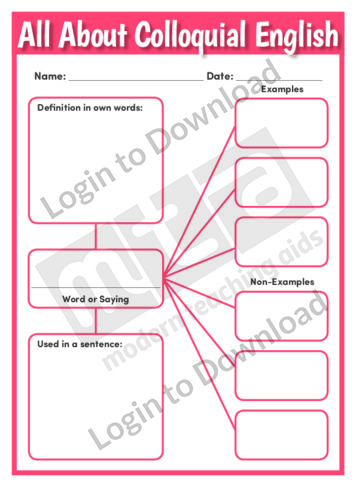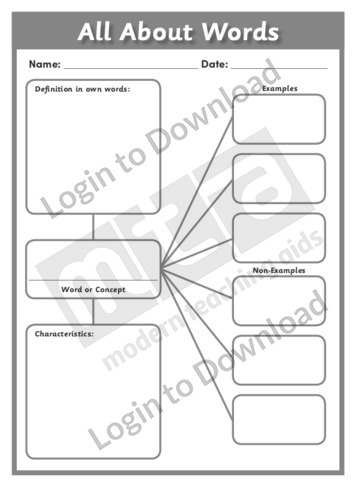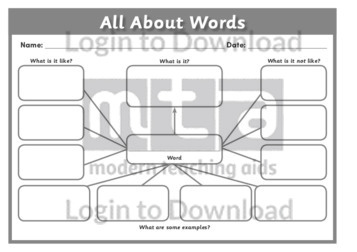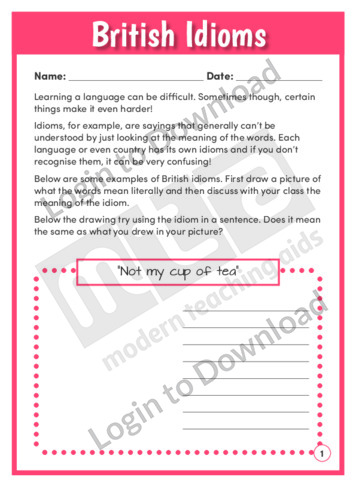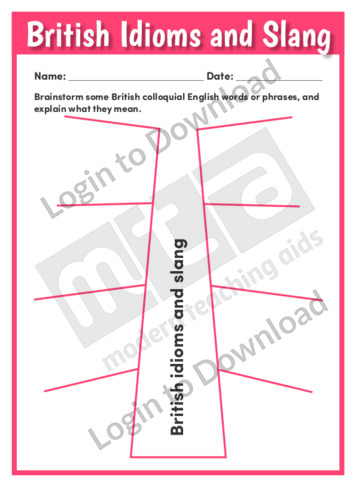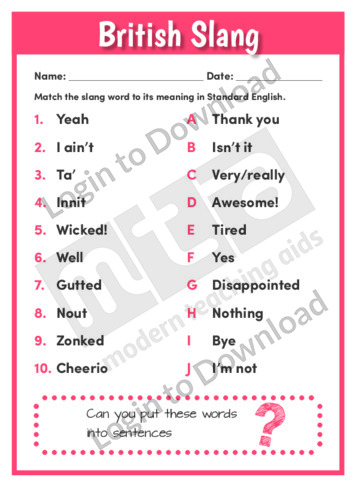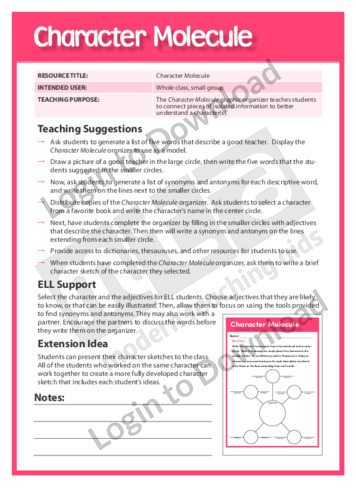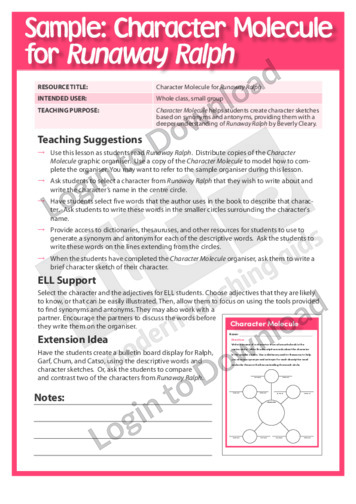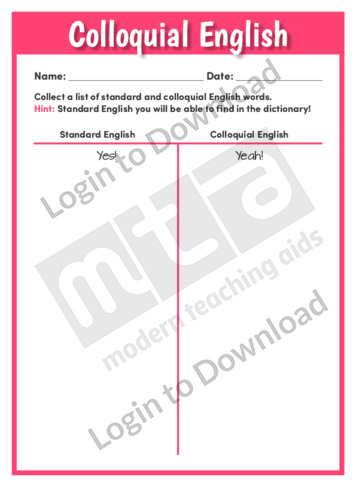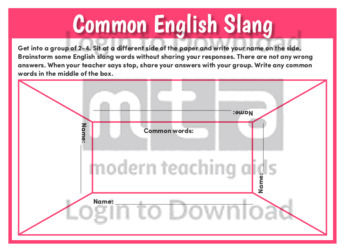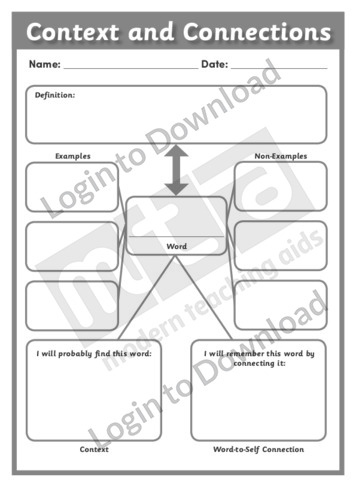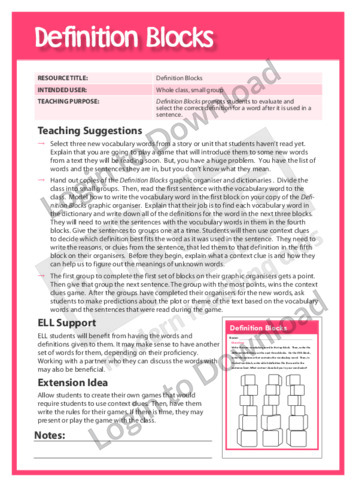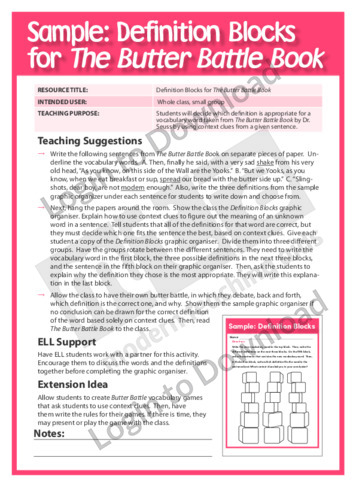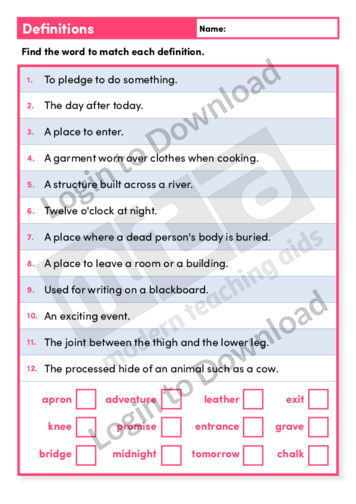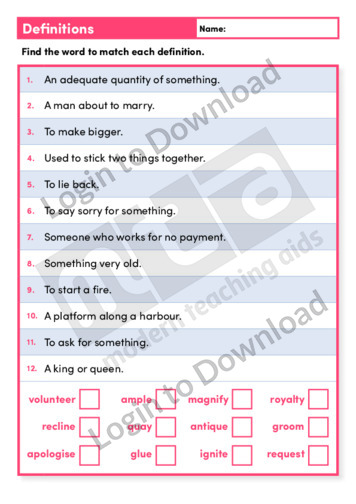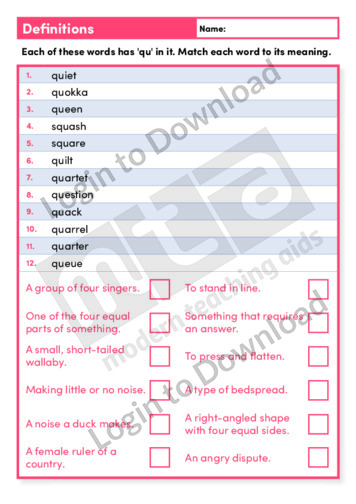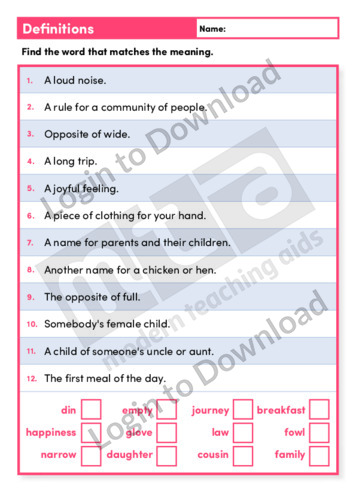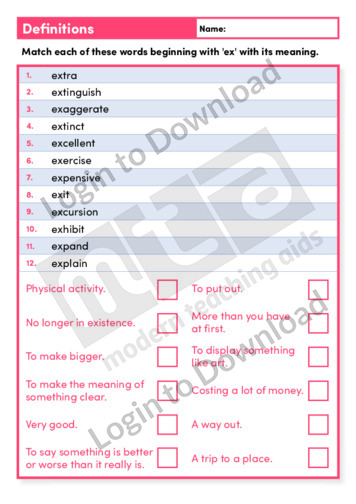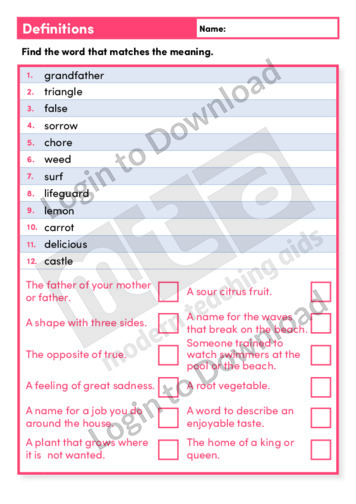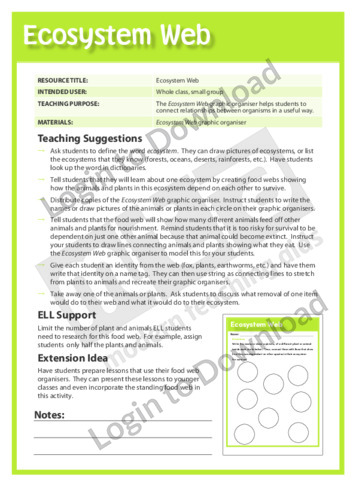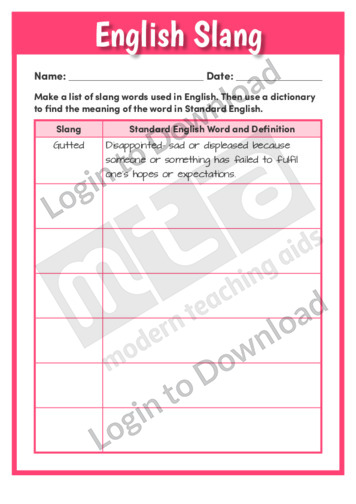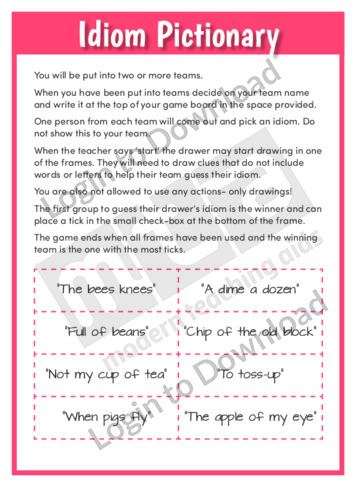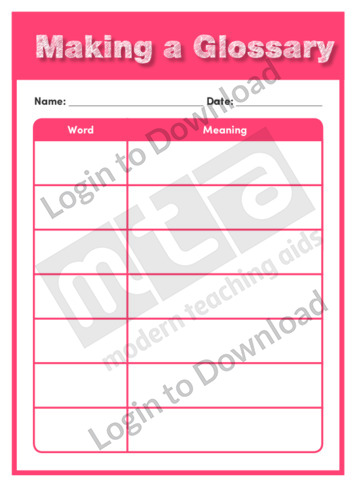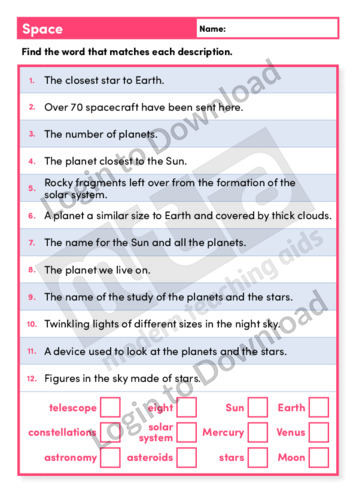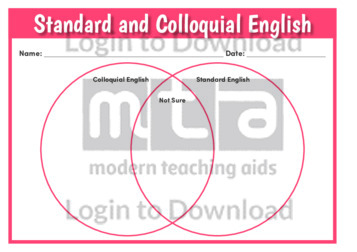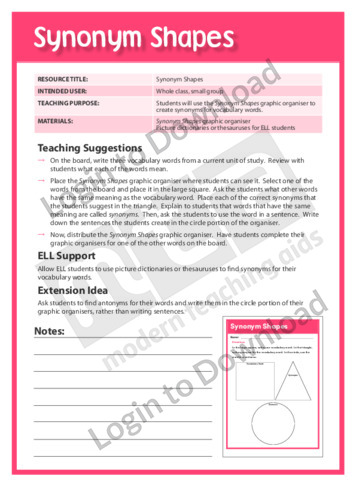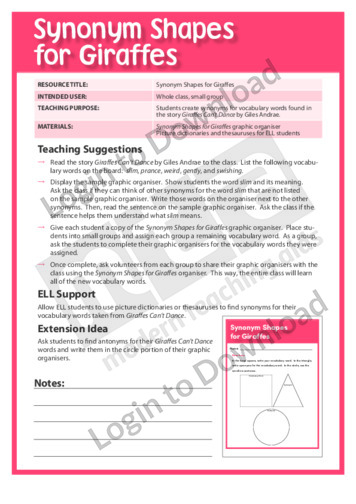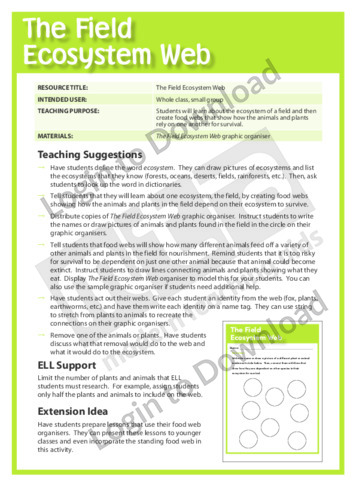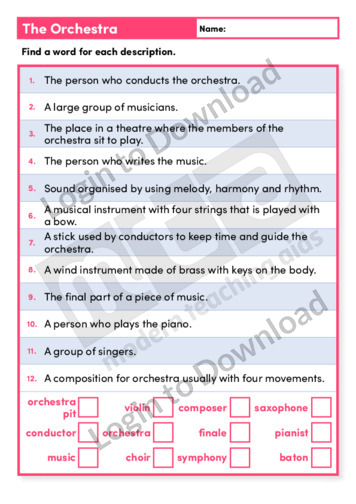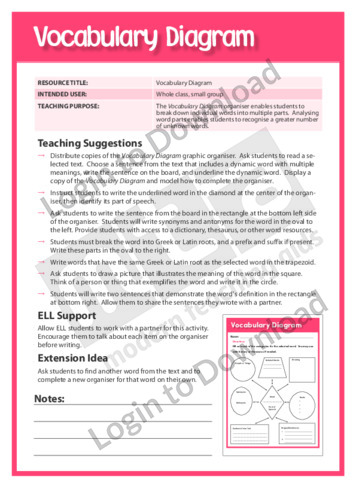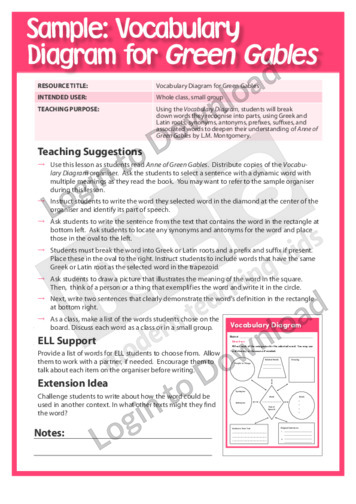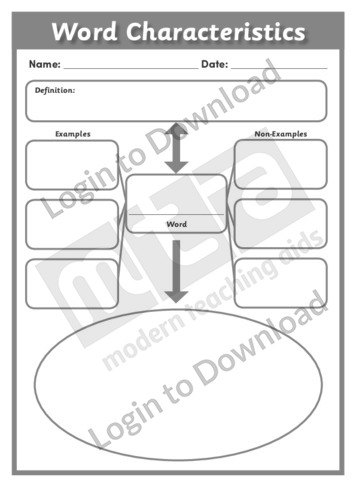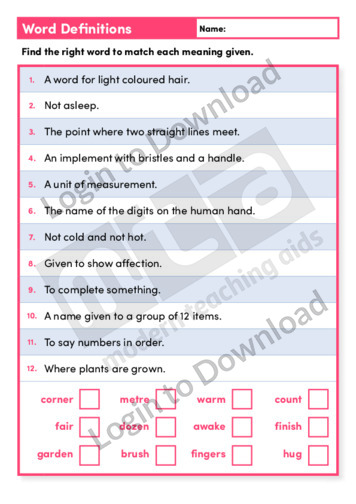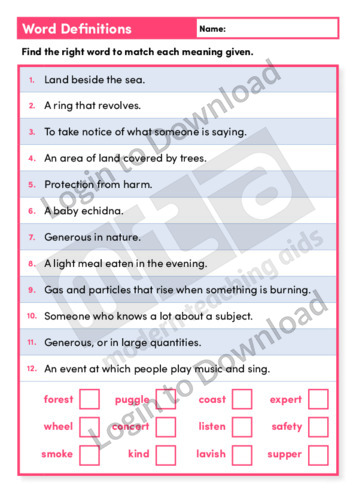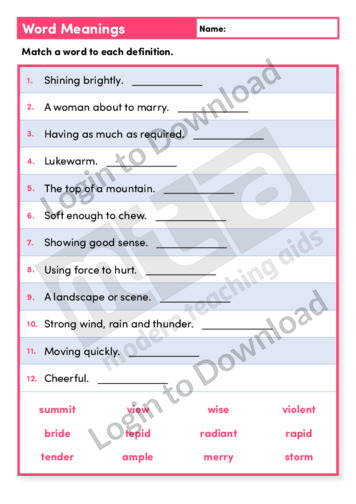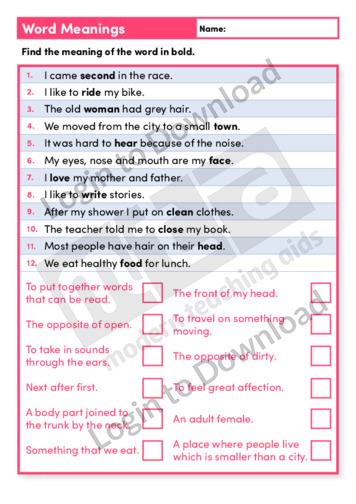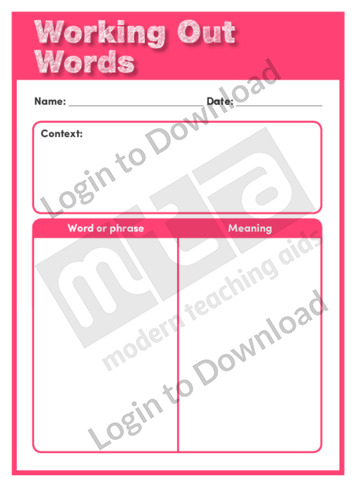This worksheet, ‘All About Colloquial English’ supports students to create associations and develop greater understandings of colloquial English words. Students are required to provide examples, non-examples, a definition and to use the word or saying in a sentence. This is a great resource for broadening students’ social, cultural and linguistic awareness and could be a …More
This graphic organiser, ‘All About Words’ provides a graphical mind map that students can use to organise information and understand the meaning of new vocabulary. The resource prompts students to identify the new word, describe it using examples and non-examples, describe its characteristics and then create their own definition. It can be used when exploring …More
This graphic organiser, ‘All About Words’ provides a graphical mind map that students can use to organise information and understand the meaning of new vocabulary. The resource prompts students to identify the new word, give examples of what it is like, give examples of what it is not like, describe it using examples and then …More
This worksheet, ‘British Idioms’ is a great resource when exploring colloquial English. It introduces the importance of understanding idioms and then requires students to illustrate the literal meaning of a selection of British sayings like ‘not my cup of tea’ or ‘the bees knees’. This worksheet provides a great platform for exploring the true meaning …More
This worksheet, ‘British Idioms and Slang’ assists students in identifying British idioms and slang. For example, students can use this graphical scaffold to provide evidence of their learning following the completion of an activity or topic. Alternatively, it can be used effectively in pairs or with a whole class to prompt initial discussion before further …More
This worksheet, ‘British Slang’ helps students to recognise the difference between colloquial English and Standard English. It requires students to match the colloquial language to its meaning in Standard English. This is a great resource for broadening students’ social, cultural and linguistic awareness and could be a useful foundation for further discussion of language usage.
This graphic organiser, ‘Character Molecule’ asks students to connect pieces of isolated information to better understand characters from a text.
This graphic organiser, ‘Character Molecule for Runaway Ralph’ helps students to create character sketches based on synonyms and antonyms, providing them with a deeper understanding of Runaway Ralph by Beverly Cleary.
This worksheet, ‘Colloquial English’ is a simple resource that requires students to collect colloquial English terms and then find their meanings using Standard English. The use of the t-chart allows students to directly compare both lists and can be used as an aid to whole class discussions or for individual work. This is a great …More
This worksheet, ‘Common English Slang’ is a fantastic activity to fuel ideas in a communal environment. Sharing ideas, particularly for less confident student can be daunting however, this resource provides a very informal prompt to develop ideas in order to compare and share them with others. Students are required to choose a side of the …More
This graphic organiser, ‘Contexts and Connections’ provides a graphical mind map that students can use to organise information and understand the meaning of new vocabulary. The resource prompts students to identify the new word, describe it using examples and non-examples and then create or find the definition. It also encourages students to make connections to …More
This graphic organiser, ‘Definition Blocks’ asks students to evaluate and select the correct definition for a word after it is used in a sentence.
This graphic organiser, ‘Definition Blocks for The Butter Battle Book’ asks students to decide which definition is appropriate for a vocabulary word taken from The Butter Battle Book by Dr Seuss by using context clues from a given sentence.
This vocabulary activity, ‘Definitions’ supports vocabulary development by encouraging students to match common words to their correct definitions.
This vocabulary activity, ‘Definitions’ supports vocabulary development by encouraging students to match common words to their correct definitions.
This spelling activity, ‘Definitions’ provides opportunities for practice with matching meanings to words.
This reading activity, ‘Definitions’ provides opportunities for practice with matching meanings to words.
This spelling activity, ‘Definitions’ provides opportunities for practice with matching meanings to words.
This reading activity, ‘Definitions’ provides opportunities for practice with matching the meaning to words.
This graphic organiser, ‘Ecosystem Web’ helps students to connect relationships between organisms in a useful way.
This worksheet, ‘English Slang’ is a simple resource that requires students to collect colloquial English terms and then find their meanings using Standard English. The use of this graphical organiser allows students to directly compare both lists and can be used as an aid to whole class discussions or for individual work. This is a …More
This worksheet, ‘Idiom Pictionary’ is a fun resource that provides instructions, example cards and game boards for the game of idiom Pictionary. Students are put into teams and must illustrate an idiom well enough for their group to guess it. The team that guesses the quickest the most amount of times is the overall winner. …More
This graphic organiser, ‘Making a Glossary’ supports the teaching of reading and writing by giving students a template for recording new words and their meanings.
This vocabulary activity, ‘Space’ supports vocabulary development by encouraging students to match space vocabulary to relevant definitions or descriptions.
This worksheet, ‘Standard and Colloquial English’ offers students the opportunity to compare and contrast examples of colloquial English and Standard English. Using the Venn diagram also provides students with an opportunity to discuss the grey area where colloquial words have become absorbed into Standard English through frequent usage and can therefore can be classified in …More
This graphic organiser, ‘Synonym Shapes’ supports students to create synonyms for vocabulary words.
This graphic organiser, ‘Synonym Shapes for Giraffes’ supports students to create synonyms for vocabulary words found in the story ‘Giraffes Can’t Dance’
This graphic organiser, ‘The Field Ecosystem Web’ helps students to learn about the ecosystem of a field and then create food webs that so how the animals and plants rely on one another for survival.
This vocabulary activity, ‘The Orchestra’ supports vocabulary development by encouraging students to match musical vocabulary to relevant definitions or descriptions.
This graphic organiser, ‘Vocabulary Diagram’ enables students to break down individual words into multiple parts.
This graphic organiser, ‘Vocabulary Diagram for Anne of Green Gables’ enables students to break down words they recognise into parts, using Greek and Latin roots, synonyms, antonyms, prefixes, suffixes and associated words to deepen their understanding of Anne of Green Gables by L.M. Montgomery.
This graphic organiser, ‘Word Characteristics’ provides a graphical mind map that students can use to organise information and understand the meaning of new vocabulary. The resource prompts students to identify the new word, describe it using examples and non-examples and then create or find the definition. It can be used when exploring new topics and …More
This vocabulary activity, ‘Word Definitions’ supports vocabulary development by encouraging students to match definitions to their appropriate words.
This vocabulary activity, ‘Word Definitions’ supports vocabulary development by encouraging students to match definitions to their appropriate words.
This vocabulary activity, ‘Word Meanings’ supports vocabulary development by encouraging students to identify nouns and adjectives from descriptions.
This reading activity, ‘Word Meanings’ provides opportunities for practice with finding meanings of words in the given sentences.
This graphic organiser, ‘Working Out Words’ supports the teaching of vocabulary and reading strategies by asking students to context and meanings of unfamiliar words as they read.
It�s that easy!

